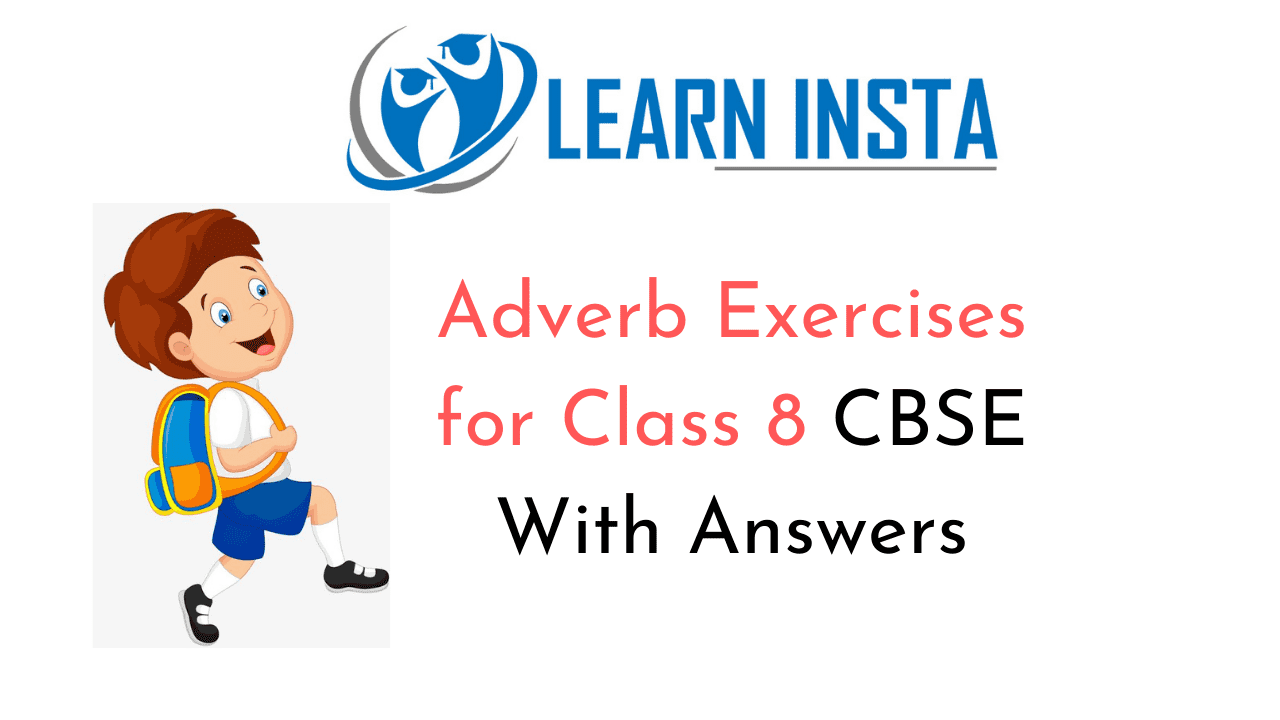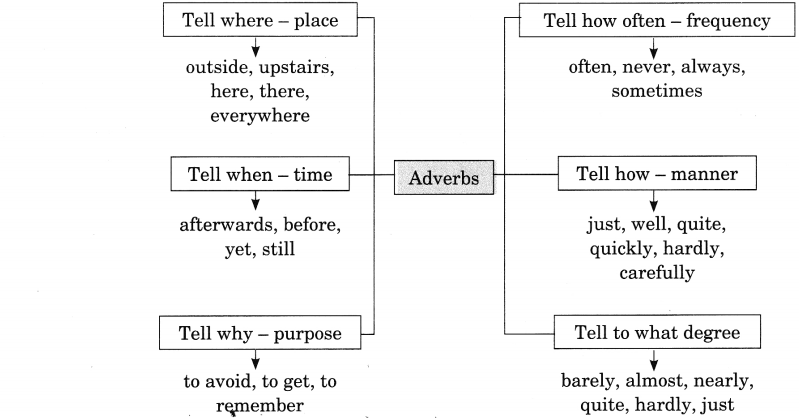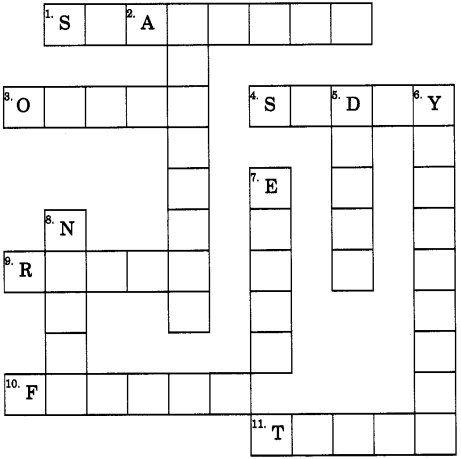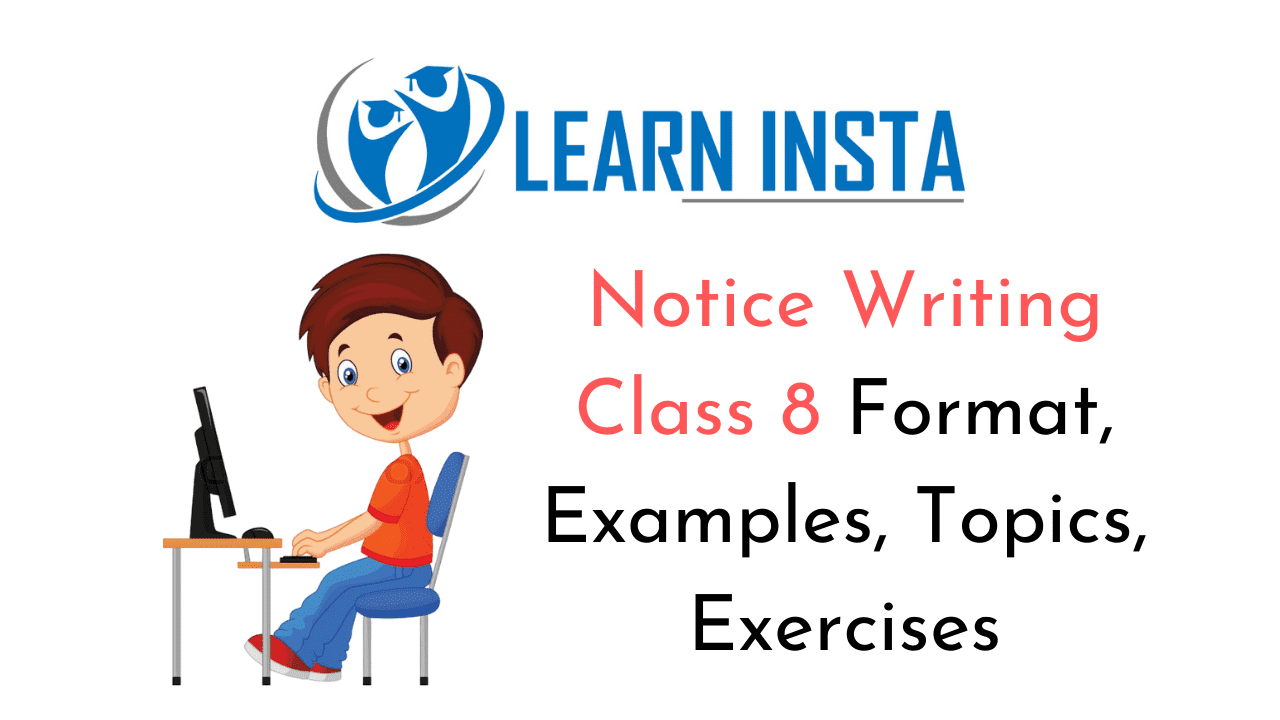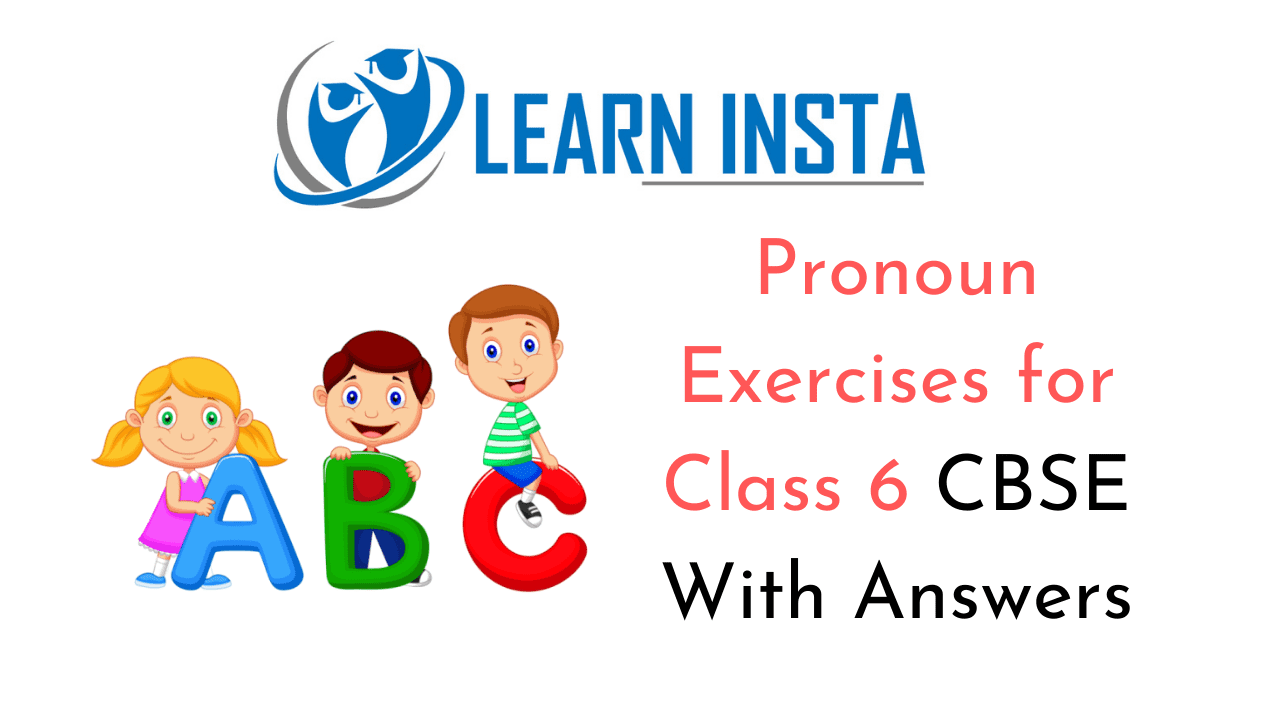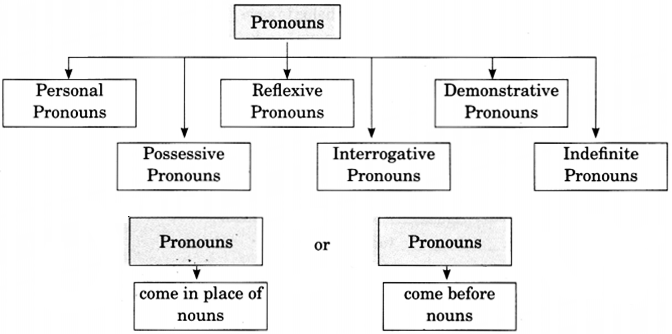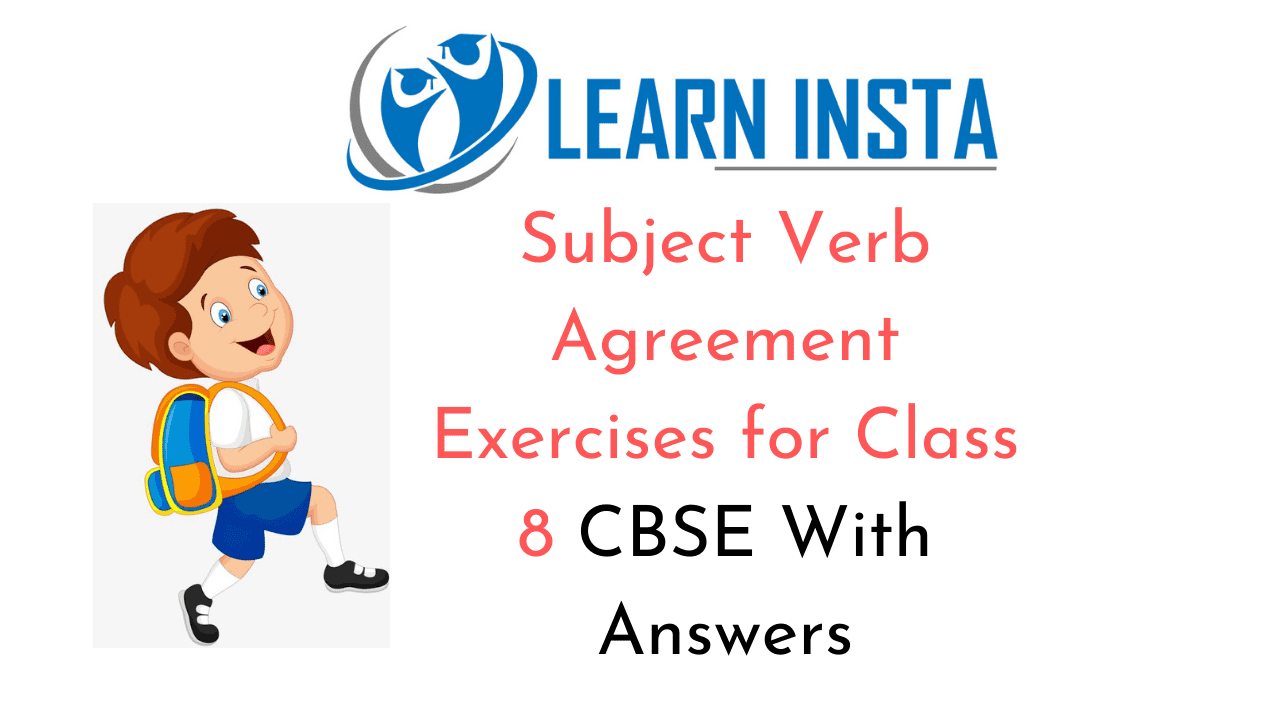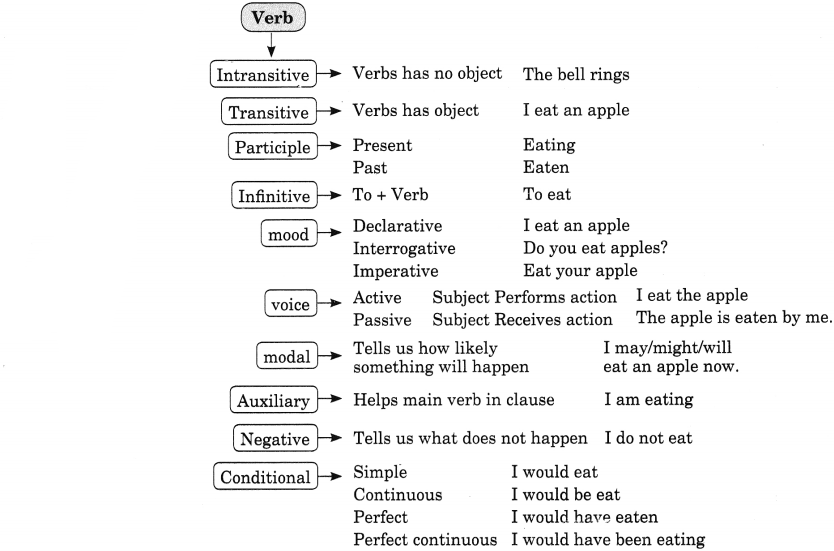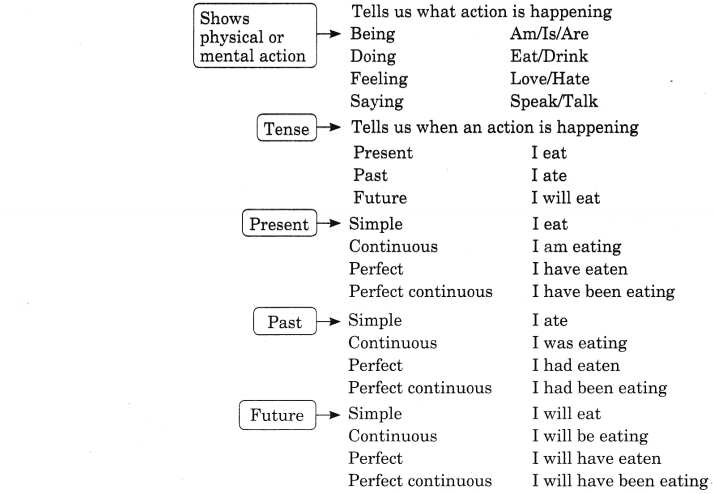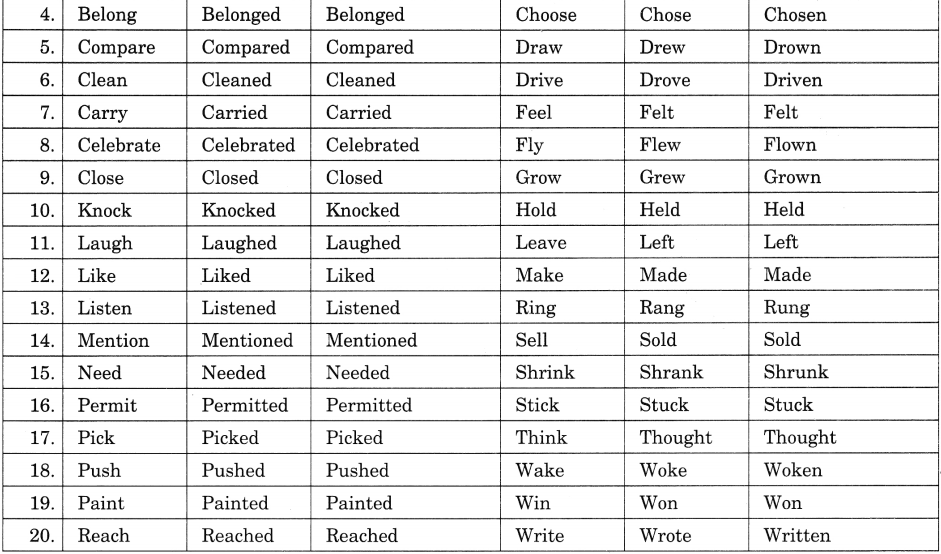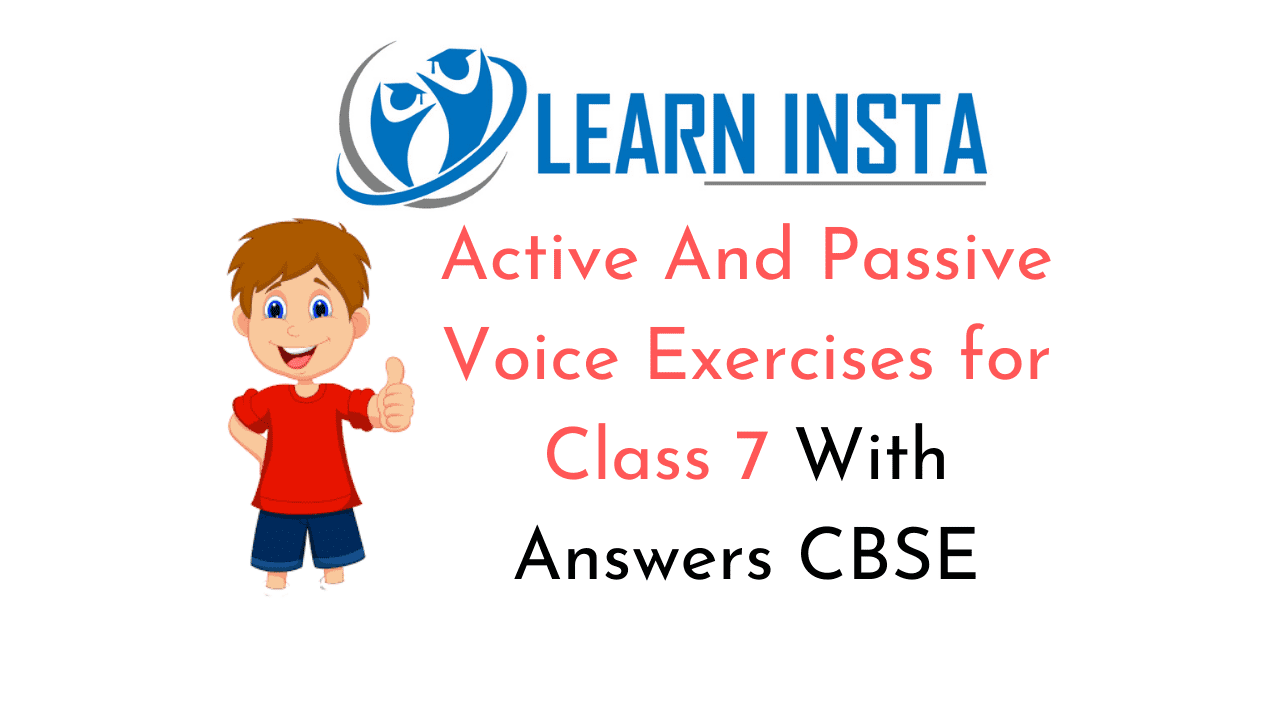
When to use Active Voice:
When focus is on an agent, the sentence is used in active mode.
This grammar section explains English Grammar in a clear and simple way. There are example sentences to show how the language is used. You can also visit the most accurate and elaborate NCERT Solutions for Class 7 English. Every question of the textbook has been answered here.
Active And Passive Voice Exercises for Class 7 With Answers CBSE Pdf
The form of verb which tells whether the subject (person or object) of a sentence do something or something has been done to the subject is called voice.
Active Voice: A verb is said to be in the Active Voice when the subject acts or when the emphasis is on the doer or the subject.
Examples:
- Mohan sang a song.
- Here, the subject Mohan is acting.
Passive Voice: A verb is in the Passive Voice when the subject is being acted upon or when the emphasis is on the object or the work done.
Examples:
- A song was sung by Mohan.
- Here, the (song) subject is being acted upon.
The sentence must have objects. If there is no object then there must be a questioning statement which of the asks the object. Object active sentence becomes the subject of passive sentence. The word ‘by’ is used before the subject in sentences in passive voice. 3rd form of Verb is always used as the main verb in sentences of passive voice for all tenses. The places of subject and object are interchanged i.e. the object shifts to the place of subject and subject shifts to the place of object in the passive voice.
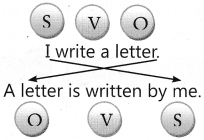
Auxiliary verbs are used in passive voice according to the tenses.
Change Of Pronouns In Active And Passive Voice
| Active | Passive |
| I | Me |
| We | Us |
| You | You |
| He | Him |
| She | Her |
| It | It |
| They | Them |
Active and Passive voice in the simple present tense.

Active and Passive voice in simple past tense.
Active and Passive Voice Exercises for Class 7 With Answers CBSE 2

Active and Passive voice in simple Future tense.

Active and Passive voice ¡n present progressive tense.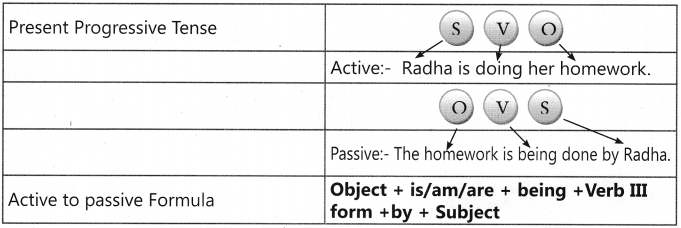
Active and Passive voice ¡n past progressive tense.


Active and Passive voice in the present perfect tense.

Active and Passive voice in past perfect tense.
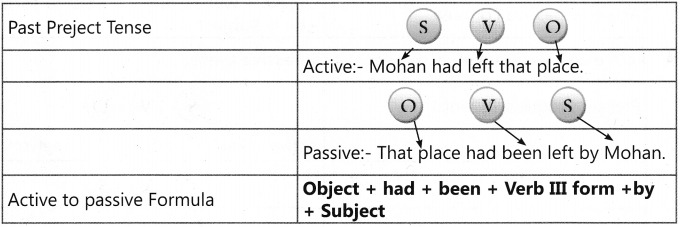
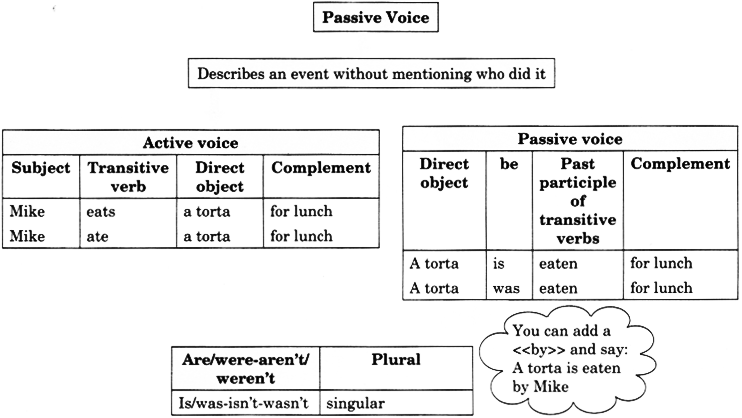
Active And Passive Voice Exercises Solved Examples for Class 7 CBSE
Question 1.
Complete the following sentences using appropriate active or passive verbs forms. Choose your answers from the given options.
(i) The problem ________ to the children. (explained/was explained)
(ii) Those pyramids ________ around 400 A.D. (built/were built)
(iii) All the trouble ________ by your mother. (has caused/ was caused)
(iv) The visitors ________ (were shown/have shown) a collection of old manuscripts.
(v) I ________ him ten thousand pound last year. (lend/lent/was lent)
(vi) She ________ of spiders. (frightened/ is frightened)
(vii) That picture ________ by my grandmother. (painted/ was painted)
(viii) I ________ by his attitude. (shocked/have shocked/was shocked)
(ix) Excuse the mess. The house ________ (is painting/is being painted/has painted)
(x) I knew why I ________ (had chosen/ had been chosen)
Answer:
(i) was explained
(ii) were built
(iii) was caused
(iv) were shown
(v) lent
(vi) is frightened
(vii) was painted
(viii) was shocked
(ix) being painted
(x) had been chosen
Question 2.
Change the following sentences into the passive voice.
(i) They elected him chairman.
(ii) The children laughed at the beggar.
(iii) The guard caught the thief.
(iv) The soldiers attacked the enemy barracks.
(v) The cat drank all the milk.
(vi) The old man takes’snuff.
(vii) Somebody hit the dog with a stick.
(viii) I will order the carriage.
(ix) One may accomplish anything with a little effort.
(x)” A thunderstorm often turns milk sour.
Answer:
(i) He was elected chairman (by them).
(ii) The beggar was laughed at by the children.
(iii) The thief was caught by the guard.
(iv) The enemy barracks were attacked by the soldiers.
(v) All the milk was drunk by the cat.
(vi) Snuff is taken by the old man.
(vii) The dog was hit with a stick (by somebody).
(viii) The carriage will be ordered (by me).
(ix) With a little effort anything can be accomplished.
(x) Milk is often turned sour by a thunderstorm.
Question 3.
Change the following sentences into active voice.
(i) Did she do her duty?
(ii) The tiger was chasing the deer.
(iii) She has written a novel.
(iv) She has learned her lessons.
(v) Have you finished the report?
(vi) The police have caught the thief.
(vii) My brother has completed the work.
(viii) Somebody stole my pen yesterday.
(ix) Our team may win in match.
(x) Nurses look after patients.
Answer:
(i) Was her duty done by her?
(ii) The deer was being chased by the tiger.
(iii) A novel has been written by her.
(iv) Her lessons have been learned by her.
(v) Has the report been finished by you?
(vi) The thief has been caught by the police.
(vii) The work has been completed by my brother.
(viii) My pen was stolen by somebody yesterday.
(ix) The match may be won by our team.
(x) Patients are looked after by nurses.
Active And Passive Voice Exercises Practice Examples for Class 7 CBSE
1. Change the following sentences into Passive Voice.
1. He is catching fish.
____________________
2. She was cooking vegetables.
____________________
5. They buy fish every day.
____________________
6. She gave us the news.
____________________
7. He wrote me a letter.
____________________
8. She made us some tea.
____________________
2. Choose the correct option from the given set of options.
(i) The book is being ________ by me”.
(a) read
(b) reading
(c) reads
(d) do read
(ii) Passive voice of the sentence “The cat eats the rat” is
(a) The rat was eaten by the cat
(b) The rat was being eaten by the cat
(c) The rat is being eaten by the cat
(d) The rat is eaten by the cat
(iii) “A washing machine has been bought by me.” The sentence is in
(a) Present Perfect Continuous (Active)
(b) Present Perfect (Active)
(c) Present Perfect (Passive)
(d) Present Perfect Continuous (Passive)
(iv) Lucky draw ________ be won by him.
(a) shall
(b) will
(c) shall
(d) will have
(v) A stone ________ being thrown by him last day.
(a) was
(b) is
(c) is
(d) were
(vi) “The door had been locked by them”. The sentence is in
(a) Present Perfect (Active)
(b) Present Perfect Continuous (Active)
(c) Present Perfect Continuous (Passive)
(d) Present Perfect (Passive)
(vii) Passive voice of the sentence. “She offered them a seat” is
(a) They are offered, a seat by she
(b) They are offered a seat by her
(c) A seat is offered to them by her
(d) A seat was offered to them by her
(viii) The gardener has planted some trees. (Active) Some trees ________ planted by the gardener. (Passive) :
(a) has been
(b) have been
(c) had been
(d) were
(ix) “Some advice will be given to you by the doctor”. The sentence is in
(a) Simple Present (Active)
(b) Simple Future (Active)
(c) Simple Future (Passive)
(d) Simple Present (Passive)
(x) “The match has ________ abandoned due to rain”.
(a) be
(b) been
(c) being
(d) None of these
(xi) A mango is ________ eaten by the boys”.
(a) be
(b) been
(c) being
(d) None of these
(xii) “The ground will ________ ready in two days”.
(a) be
(b) been
(c) being
(d) None of these
(xiii) Active voice of the sentence “some advice will be given to you by the doctor”.
(a) Doctor will give you some advice
(b) Doctor shall give you some advice
(c) Doctor has to will give you some advice
(d) Doctor had to give you some advice
(xiv) Julie answered the questions. (Active)
The questions ________ answered by Julie. (Passive)
(a) are
(b) have been
(c) being
(d) None of these
(xv) Someone is repairing the instrument. (Active)
The instrument is being repaired by someone. (Passive)
The Change of voice is:
(a) correct
(b) incorrect
(c) voice can’t be changed
(d) can’t say
